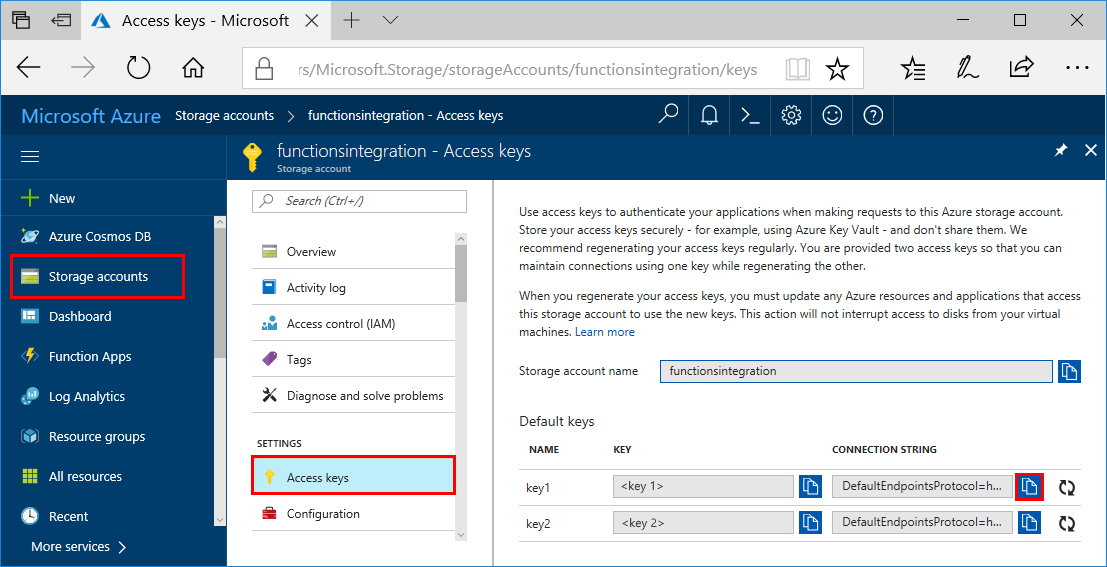Note
Access to this page requires authorization. You can try signing in or changing directories.
Access to this page requires authorization. You can try changing directories.
APPLIES TO:
Table
This tutorial provides instructions on importing data for use with the Azure Cosmos DB API for Table. If you have data stored in Azure Table Storage, you can use the Data migration tool to import your data to the Azure Cosmos DB for Table.
Prerequisites
Increase throughput: The duration of your data migration depends on the amount of throughput you set up for an individual container or a set of containers. Be sure to increase the throughput for larger data migrations. After you've completed the migration, decrease the throughput to save costs.
Create Azure Cosmos DB resources: Before you start migrating the data, create all your tables from the Azure portal. If you're migrating to an Azure Cosmos DB account that has database-level throughput, make sure to provide a partition key when you create the Azure Cosmos DB tables.
Data migration tool
Important
Ownership of the Data Migration Tool has been transferred to a 3rd party who is acting as maintainers of this tool which is open source. The tool is currently being updated to use the latest nuget packages so does not currently work on the main branch. There is a fork of this tool which does work. You can learn more here.
You can use the command-line data migration tool (dt.exe) in Azure Cosmos DB to import your existing Azure Table Storage data to a API for Table account.
To migrate table data:
Download the migration tool from GitHub.
Run
dt.exeby using the command-line arguments for your scenario.dt.exetakes a command in the following format:dt.exe [/<option>:<value>] /s:<source-name> [/s.<source-option>:<value>] /t:<target-name> [/t.<target-option>:<value>]
The supported options for this command are:
- /ErrorLog: Optional. Name of the CSV file to redirect data transfer failures.
- /OverwriteErrorLog: Optional. Overwrite the error log file.
- /ProgressUpdateInterval: Optional, default is
00:00:01. The time interval to refresh on-screen data transfer progress. - /ErrorDetails: Optional, default is
None. Specifies that detailed error information should be displayed for the following errors:None,Critical, orAll. - /EnableCosmosTableLog: Optional. Direct the log to an Azure Cosmos DB table account. If set, this defaults to the destination account connection string unless
/CosmosTableLogConnectionStringis also provided. This is useful if multiple instances of the tool are being run simultaneously. - /CosmosTableLogConnectionString: Optional. The connection string to direct the log to a remote Azure Cosmos DB table account.
Command-line source settings
Use the following source options when you define Azure Table Storage as the source of the migration.
- /s:AzureTable: Reads data from Table Storage.
- /s.ConnectionString: Connection string for the table endpoint. You can retrieve this from the Azure portal.
- /s.LocationMode: Optional, default is
PrimaryOnly. Specifies which location mode to use when connecting to Table Storage:PrimaryOnly,PrimaryThenSecondary,SecondaryOnly,SecondaryThenPrimary. - /s.Table: Name of the Azure table.
- /s.InternalFields: Set to
Allfor table migration, becauseRowKeyandPartitionKeyare required for import. - /s.Filter: Optional. Filter string to apply.
- /s.Projection: Optional. List of columns to select,
To retrieve the source connection string when you import from Table Storage, open the Azure portal. Select Storage accounts > Account > Access keys, and copy the Connection string.

Command-line target settings
Use the following target options when you define the Azure Cosmos DB for Table as the target of the migration.
- /t:TableAPIBulk: Uploads data into the Azure Cosmos DB for Table in batches.
- /t.ConnectionString: The connection string for the table endpoint.
- /t.TableName: Specifies the name of the table to write to.
- /t.Overwrite: Optional, default is
false. Specifies if existing values should be overwritten. - /t.MaxInputBufferSize: Optional, default is
1GB. Approximate estimate of input bytes to buffer before flushing data to sink. - /t.Throughput: Optional, service defaults if not specified. Specifies throughput to configure for table.
- /t.MaxBatchSize: Optional, default is
2MB. Specify the batch size in bytes.
Sample command: Source is Table Storage
Here's a command-line sample showing how to import from Table Storage to the API for Table:
dt /s:AzureTable /s.ConnectionString:DefaultEndpointsProtocol=https;AccountName=<Azure Table storage account name>;AccountKey=<Account Key>;EndpointSuffix=core.chinacloudapi.cn /s.Table:<Table name> /t:TableAPIBulk /t.ConnectionString:DefaultEndpointsProtocol=https;AccountName=<Azure Cosmos DB account name>;AccountKey=<Azure Cosmos DB account key>;TableEndpoint=https://<Account name>.table.cosmos.azure.cn:443 /t.TableName:<Table name> /t.Overwrite
Next steps
Learn how to query data by using the Azure Cosmos DB for Table.